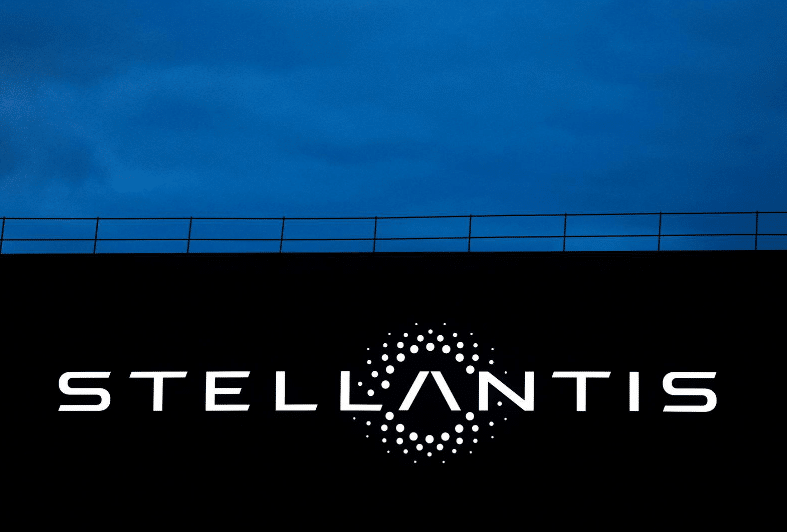26 Jun Rivian Adopts Tesla’s EV Charging Standards &Stellantis, Foxconn form 50-50 JV&Hyundai raises EV investment
Here are some of the trending news topics in the automotive and mobility markets from around the world. We will be curating three interesting pieces of news from the automotive industry and providing insightful summaries to give our readers a better understanding of the latest developments in this field.
By presenting the most significant information in a concise and accessible format, we aim to provide an engaging and informative reading experience.
So, sit back, relax, and enjoy learning about the exciting happenings in the world of automotive technology!
June 20, 2023
1.Rivian Adopts Tesla’s EV Charging Standards Amid Growing Electric Competition With Ford And GM
Rivian, an Irvine, California-based manufacturer of EV trucks and SUVs, recently announced plans to adopt the charging standards of competitor Tesla. Rivian will have access to Tesla's approximately 12,000 charging stations in the U.S. and Canada beginning next spring.
Under the agreement with Tesla, owners of Rivian's R1T and R1S vehicles will be able to use adapters compatible with Tesla's charging stations, and the charging ports on Rivian's future R1 and R2 vehicles will be compatible with Tesla chargers starting in 2025.
This is expected to dramatically expand Rivian's charging network. Following the announcement, the company's stock price jumped more than 4% that morning to a two-month high of $15.52.
Currently, Rivian is looking to install 3,500 fast chargers in 600 locations in North America. This is called the Rivian Adventure Network. Rivian also plans to install more than 10,000 high-power Level 2 chargers throughout the United States and Canada.
The agreement between Rivian and Tesla comes less than a week after Toyota, which led the hybrid boom with the Prius but was slow to introduce EVs, announced its next-generation EV plans, sending its stock to an 11-month high. In recent weeks, Tesla's stock price has continued to climb after opening its charging network to Ford and GM, hitting a nine-month high after plunging late last year, and GM CEO Mary Barra has said the agreement will double the company's access to EV charging, which will begin early next year.
June 20, 2023
2.Stellantis, Foxconn form 50-50 JV on semiconductors for auto industry
Stellantis and Foxconn Technology Group (Hon Hai Technology Group) announced that they will establish a joint venture, Silicon Auto, to design and market semiconductors for the automotive industry starting in 2026.
Headquartered in Taiwan, Foxconn Technology Group is contracted to produce the iPhone and is also known as the parent company of Sharp.
The semiconductors to be produced will be supplied to Foxconn and other companies, in addition to those for STLA Brain, a new technology platform for automated driving being developed by Stellantis.
The new joint venture, Silicon Auto, "will provide customers with an automotive industry-centric source of semiconductors for computer control functions and modules, especially those needed in electric vehicles (EVs)," the two companies said.
The deal follows a preliminary agreement between Stellantis and Foxconn in December 2021 for an alliance of semiconductors for the automotive industry, financial details of which were not disclosed. Stellantis owns various automotive brands, including Fiat and Peugeot.
The new joint venture will be based in the Netherlands, where Stellantis is also headquartered, and the management team will include executives from both companies.
Separately, the two companies have already established a joint venture, Mobile Drive, which develops in-car systems for connected cars.

画像©:Reuters
June 20, 2023
3. Hyundai raises EV investment to $28 billion, to reduce China operations
Hyundai Motor has announced that it will significantly increase its average annual investment in electrification by nearly two-thirds to $28 billion over the next decade as part of its strategy to boost electric vehicle (EV) sales, indicating that it plans to further restructure its struggling Chinese operations.
The South Korean automaker, which along with its affiliate Kia Motors is the world's third-largest auto group by sales volume, announced at its recent annual investor briefing that it will raise its EV sales target from 1.87 million to 2 million units by 2030.
To achieve this goal, the company plans to take advantage of preferential tax treatment and other incentives to boost local production of EVs in three key markets: the United States, Europe, and South Korea. In the United States, the largest market, the company plans to increase the local production ratio of EVs, which currently stands at only 0.7%, to 75% by 2030.
Hyundai CEO Jaehoon Chang said the company will consider increasing compatibility with the charging standard that Tesla is promoting in North America.
While raising EV sales targets in key markets, he said the company will further restructure its struggling China business to focus on profitability.
Chan told investors that China, the world's largest auto market, was very profitable until 2016, but is now losing market share to domestic players and posing the biggest risk; the company plans to sell one Chinese plant in 2021 and two more, including one that closed last year and another that will close this year. The remaining two factories will also be rationalized. The remaining two plants will be rationalized to produce vehicles for export to emerging markets.
The company also announced plans to invest 9.5 trillion won (approx. $7.4 billion) over the next 10 years to strengthen its battery competitiveness and develop next-generation batteries.
The company aims to achieve an operating margin of 10% or more in its EV business by 2030.





